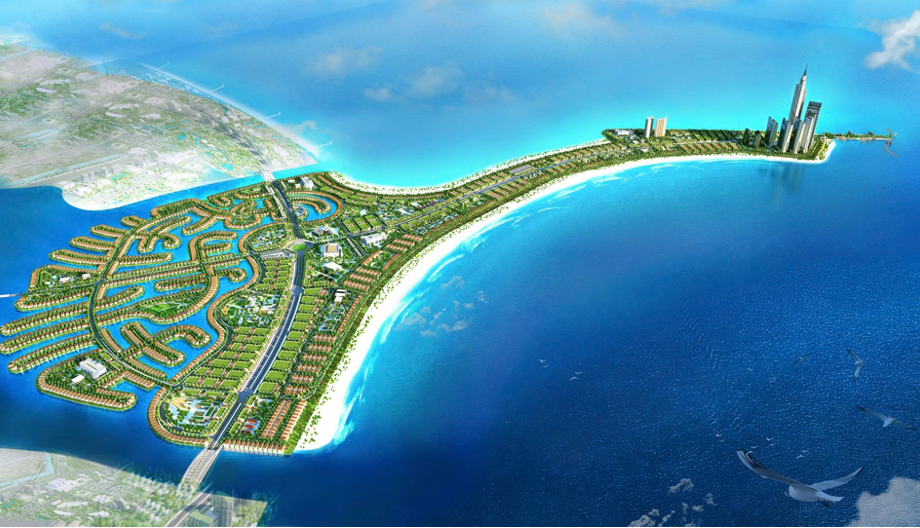More than a corporate checklist, ESG is emerging as a framework reshaping Vietnam’s cities, guiding policies, investments, and community design toward sustainability, green finance, and higher quality of life for residents.
Amid escalating global challenges of climate change, pollution, and urbanization pressure, adopting a green development path is no longer a trend, it has become an imperative of our time. In this context, ESG (Environmental, Social, and Governance) criteria are increasingly viewed as a “passport” for cities and businesses to enter an era sustainable development.
At the seminar “ESG - The Passport for the City of the Future,” co-organized by the Vietnam Real Estate E-Magazine and the Vietnam Real Estate Research Institute, experts argued that ESG is not merely a set of technical standards, but a new development philosophy. It places humanity, nature, and technology in a balanced relationship. If sustainability is the destination, then ESG is the shortest path to reach it.
 A rendering of Subdivision C1 of the Vinhomes Green Paradise Can Gio project, the first ESG++ model in the domestic real estate market. Photo: Reatimes.
A rendering of Subdivision C1 of the Vinhomes Green Paradise Can Gio project, the first ESG++ model in the domestic real estate market. Photo: Reatimes.Assoc. Prof. Dr. Bui Thi An, Director of the Institute for Resources, Environment and Community Development, stated that Vietnam faces severe environmental challenges, from air and water pollution to domestic and industrial waste. In her view, green development is not just a moral choice but a "requirement for society's survival."
“Green development encompasses a green economy, green society, green technology, and green governance. ESG is the set of criteria perfectly suited for Vietnam to pursue this path,” she emphasized.
From a practical standpoint, Mr. Vu Hong Phong, a green building expert at the International Finance Corporation (IFC), pointed out that applying ESG not only addresses traditional urban problems like congestion, flooding, and pollution but also directly enhances real estate value and residents' quality of life.
“Imagine a sustainably planned, smartly operated urban area where residents no longer worry about flooding or traffic jams, but can focus on personal development, family care, and enjoying a clean environment. That is the core benefit of ESG,” he said.
Experts note that ESG delivers multi-layered value. At the social level, it represents a commitment to living harmoniously with nature, ensuring community welfare, and maintaining transparent governance. At the corporate level, it is the key to unlocking green capital, building credibility and trust with international investors. At the market level, ESG helps real estate achieve a “green premium” - the added value derived from sustainable development.
Global precedent has shown that cities developed to ESG standards—such as King’s Cross (London), Porta Nuova (Milan), and Civita (San Diego)—have all recorded real estate price increases of 20% to 40%, alongside significant improvements in living environments. This demonstrates that sustainable development is not only humanistic but also a powerful economic lever.
In Vietnam, while the number of green buildings is growing, the potential for broader ESG development remains vast. Experts contend that once ESG standards are localized and systematically implemented, Vietnam can build world-class green cities, where each project is not just a residence, but a testament to planetary responsibility.
According to experts, "ESG++" is an upgraded framework that adds two critical pillars to the original: Regeneration (natural restoration) and Resilience (adaptability). If ESG is the tool for measuring sustainable development, ESG++ provides the foundation for cities to proactively "heal" and "upgrade" their natural, economic, and social ecosystems.
The "regenerative city" model is seen as the next evolutionary step beyond the "green city" era. Viewed through the lens of ESG++, the expanded criteria for sustainable development, the seminar offered new perspectives on the future of Vietnam's urban areas: a future where economic growth, environmental protection, and human happiness merge within a single, regenerative ecosystem.
According to Assoc. Prof. Dr. Arch. Hoang Manh Nguyen, President of the Green Urban Technology Science Institute, the "green city" model has driven significant change over the past two decades, helping to reduce emissions, conserve energy, and improve quality of life. However, he argued this model remains limited as it primarily focuses on “harm reduction”—mitigating negative impacts—which is insufficient to reverse the environmental losses accumulated from decades of over-exploitation.
Dr. Arch. Le Thi Bich Thuan, Vice Director of the Institute for Urban Research and Infrastructure Development, added that the regenerative city represents an evolution in planning. It is a human-centric mindset that uses community happiness and health as the measure of success.
"When this philosophy is put into practice," she said, "it will help us escape the 'concretization' mindset and move toward a more harmonious living space, where the city retains its unique identity while enhancing residents' quality of life."
This model also helps reduce environmental pressure and improve public health, a critical factor amid today's rapid urbanization. Dr. Thuan noted that while this is not an entirely new philosophy, "realizing it through concrete projects is both new and deeply meaningful." She argued that if implemented correctly, the regenerative city model will help bring people closer to nature while simultaneously meeting the increasingly diverse needs of modern society.
Assoc. Prof. Dr. Arch. Hoang Manh Nguyen argued that ESG++, with its twin pillars of Regeneration and Resilience, could become the new investment benchmark in Vietnam. He asserted this is not a fad, but an "inevitable shift in global capital."
In fact, ESG investment funds and international financial institutions are already prioritizing green capital, which offers lower mobilization costs and greater scalability. "Projects that meet ESG++ standards not only access capital more easily but also possess superior financial sustainability," he noted, "because they redefine 'profit' in a way that is long-term, stable, and profound."